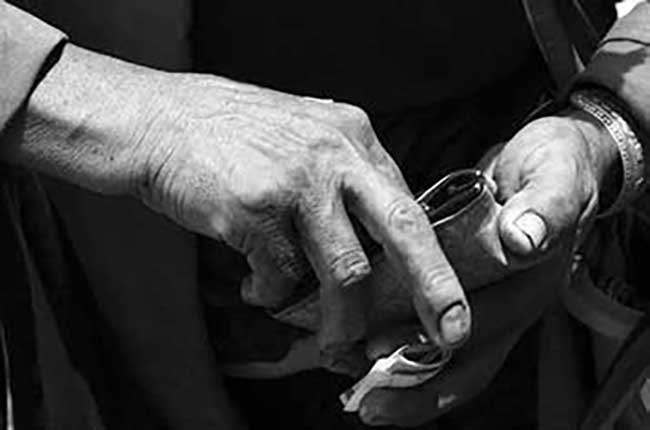Two interesting decisions have emerged from the courts. One is of significance to anyone with less than full cognitive functional ability who is in a situation where others may be trying to intervene to prevent risk or harm to them, despite their wishes and feelings.
This will be of interest to those caring for people in the coercive clutches of charismatic charmers and suchlike, even if they are not necessarily after their money.
The other concerns whether carers can help people to use a prostitute.
Arranging commercial sex
In Re C, the court of appeal overturned a decision that it was lawful for carers of a man with a mental impairment to help him to engage the services of a prostitute.
It was a hypothetical question to be dealt with by exploring whether in so doing carers would be guilty under section 39 of the Sexual Offences Act 2003, which makes it a crime for a carer to “cause or incite” a person with a “mental disorder” to engage in sexual activity (regardless of their capacity).
The man, C, had capacity to engage in sex, but insufficient capacity to organise it. He told his advocate that he wanted to have sex and wished to know whether he could have contact with a prostitute.
The advocate raised the matter with his social worker and the council launched proceedings to address the lawfulness of such contact.
The practical arrangements envisaged would involve care workers booking the sex worker, making the necessary arrangements for C to visit her, then paying her. This would involve a charity specialising in the provision of sexual services.
A care worker could safely make these arrangements for someone who does not have a mental disorder. Equally, if the arranger was outside the definition of a care worker for someone with a mental disorder, that would not be an offence. It is not clear how far the definition extends under the Sexual Offences Act.
The concept defined in section 42 is that of a care worker and unlikely to include an informal carer; however, that is arguable. This section refers to person A, who is involved in the care of person B.
42(4) This subsection applies if A —
(a) is, whether or not in the course of employment, a provider of care, assistance or services to B in connection with B’s mental disorder, and
(b) as such, has had or is likely to have regular face to face contact with B.
The lower court had said it would not be unlawful. The court of appeal disagreed, finding the steps proposed amounted to “causation”.
Although section 39 arguably created a state of affairs in which C was treated differently from people without a mental disorder, this was justified in the circumstances and can only have been parliament’s explicit intention.
Under the 2003 act, the motive of the care worker, no matter how laudable, and the consent of the person with a mental disorder who wishes to engage in sexual activity are irrelevant.
Creation of circumstances for that activity rather than causing it in a legal sense is where the court felt the line should be drawn. The Sexual Offences Act requires the conduct of the defendant to be an operative cause of the prohibited activity.
The judge could not see how the extensive arrangements necessary for this man to engage in sexual relations with a prostitute, and without which sexual activity with a third party would be impossible for him, could be held to be outside the terms of the relevant section.
The court did not mean to stymie all thought of aiding people with “help” to start or continue sexual relationships, because each would turn on its own facts.
Examples on the other side of the line were suggested to be a worker taking a person to visit her partner for “private time” together, where sexual activity might or might not happen, or carers assisting a young person who wishes to go out and meet people in social situations.
One might ask whether providing the means, as a paid appointee or a deputy, to buy sex is “causing” sexual activity. Could carers take practical steps to help C into a position, when visiting his clearly chosen sexual partner, without that being “causing”?
The court envisaged that it might be appropriate in future cases for the court of protection to endorse a care plan under which care workers facilitated or supported such contact and to make an order under section 15 of the Mental Capacity Act 2005 that the care plan was both lawful and in C’s best interests.
Any declaration in future cases would not be binding on the prosecuting authorities, although no doubt it would be taken into consideration in the event of any subsequent criminal investigation.
Potentially exploitative relationships
In a separate case, Re BU, a wealthy woman in her 70s (BU) had been in a long relationship with a man in his 40s (NC). He had a history of unsavoury convictions and alleged offences, including fraud, blackmail, dishonesty, sexual assault and rape.
She was stopped from having further contact with him and given the extra safety of a forced marriage protection order, despite her strong and heartfelt wishes to share her life with him.
The reason was that her condition-related incapacity and possibly lifelong loneliness since the breakdown of her first marriage were found to prevent her from considering the strength of the evidence of his history and motives based on his actions.
She was given the extra safety of a forced marriage protection order, despite her strong and heartfelt wishes to share her life with him.
The woman’s daughters became concerned when it emerged that NC had attempted to acquire a fund owned by their mother worth £700,000. Some of her investment assets had disappeared, and other assets had been realised to fund the cost of acquiring a boat, a caravan, a pick-up truck and a van, all purchased in her name but seemingly used by the man in his business.
He had received various sums in cash from BU’s accounts, estimated by the police to be approximately £80,000. She had apparently been persuaded to underwrite the entire wages bill and paid for materials, equipment and the hire costs related to this business as well. He maintained she now had a 35% interest in a business but could provide no written evidence of this.
NC claimed that BU’s daughters were financially motivated to alienate her from him. He saw his relationship with BU as a romantic albeit platonic bond, which he hoped would be given legal status in due course through a civil partnership.
The daughters feared being isolated from their mother, and that she might become isolated from family and friends. The loss of their inheritance if a marriage was concluded was accepted as not being the main point of their intervention.
The judge videolinked with BU and accepted NC was a central and crucially important part of her life, pivotal to her emotional wellbeing and happiness. She could not countenance an existence without him, although she had been unable to have any contact with him for a year.
Her diagnosis of vascular dementia made her vulnerable to alleged control in that she could not recognise it was an aspect of her relationship with NC. If the court were to deprive her of his company, she saw her future as empty, bleak and devoid of all that she presently craved to salve her long-term loneliness.
Her rights to a family life under article 8 and her rights to marry a person of her choosing under article 12 were fully engaged.

Dementia may make a person vulnerable to financial abuse and coercive control in a relationship.
The court said that, where personal autonomy and life choices are a central aspect of the human right that the court is bound to uphold and respect, it should intervene only in limited circumstances.
NC believed the court should have no role to play in relation to her decision-making, and maintained she was capacitous in her own right.
The council took a neutral position in respect of future contact but made it clear it had neither the professional expertise nor the financial resources to supervise any contact the court may order. This illustrates the limits of safeguarding – however much effort might be put into it.
The council’s assessment in 2020 concluded that BU’s care needs were being met although it identified risks of financial abuse and coercion and control in the relationship between NC and BU; it would do no more, given the formal appointment of a financial deputy to look after BU’s financial affairs and the restrictions placed by the court on contact between them.
The court found the man had “engaged in a deliberate and calculated attempt to subvert any independent decision-making”.
He was described in evidence as a narcissist and a fantasist, and could not satisfy the judge as to benign motivation with regard to what he had done or attempted with BU’s money.
The judge attached a penal notice to the forced marriage protection order to ensure the man knew clearly that any attempted breach of the order could have severe consequences, including imprisonment, were he found to be in contempt of court.
The court held that in any future considerations of contact, the factors that were “relevant information” for the purposes of section 3 of the Mental Capacity Act 2005 include:
- With whom will that person be having contact?
- The nature of the relationship between them;
- What will be the nature of the contact? Will such contact take place in a public or private setting? Will overnight stays be involved? Will contact involve the presence of a carer or support worker?
- What are the positive and negative aspects of that contact? In this context, unless demonstrably false, any assessment should include not only an individual’s current experiences but also any negative or unpleasant aspects of past experiences during contact with that individual.
- The assessment needs to include consideration of what constitutes a family relationship and that such relationships are different from other categories of contact. n
Cases
Re C [2021] EWCA Civ 1527. https://tinyurl.com/y2pf7be8
Re BU [2021] EWCOP 54. https://tinyurl.com/yu3d2se7




